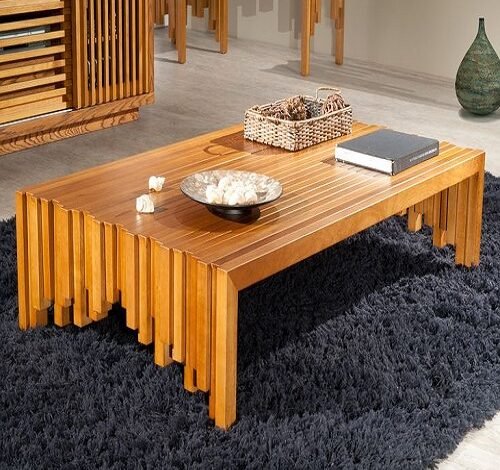How To Judge Quality In Custom-Made Furniture; Explain
How to Judge Quality in Custom-Made Furniture

How to Judge Quality in Custom-Made Furniture
When investing in custom-made furniture, you want pieces that not only reflect your personal style but also stand the test of time. However, determining the quality of custom furniture can be challenging, especially if you’re not familiar with the nuances of craftsmanship and materials. In Dubai, where bespoke furniture is highly sought after, understanding what to look for can help you make informed decisions and ensure you receive value for your investment. This guide will walk you through the key aspects to consider when judging the quality of custom-made furniture.
1. Material Selection
The foundation of any quality furniture piece is the material used. High-end custom made furniture often utilizes solid wood, such as oak, walnut, cherry, or teak. These woods are not only durable but also age beautifully, developing a rich patina over time. In contrast, furniture made from particleboard, MDF (medium-density fiberboard), or plywood may be less expensive, but they are also less durable and prone to damage.
When evaluating custom furniture, ask about the type of wood used and its source. Furniture crafted from sustainably sourced, kiln-dried hardwoods will resist warping and splitting, ensuring longevity. Additionally, consider the finish applied to the wood. A well-applied finish protects the wood and enhances its natural beauty.
2. Joinery Techniques
Joinery refers to how different parts of the furniture are connected. Quality joinery is a hallmark of well-made custom furniture. Traditional techniques like dovetail, mortise and tenon, and dowel joints indicate a high level of craftsmanship. These methods create strong, durable connections that can withstand the test of time.
Avoid furniture that relies heavily on screws, nails, or glue alone, as these fasteners can loosen over time, leading to instability. Instead, look for pieces where the joints are carefully crafted and seamlessly integrated into the design. The precision and care put into joinery directly impact the overall strength and durability of the furniture.
3. Attention to Detail
In custom-made furniture, the devil is in the details. The level of attention to detail can distinguish a mediocre piece from a masterpiece. Inspect the furniture closely for signs of careful craftsmanship:
- Smooth Edges and Surfaces: Quality furniture should have smooth, even surfaces with no rough edges or splinters. The finish should be consistent and free of streaks, drips, or bubbles.
- Symmetry and Proportion: Well-designed furniture maintains balance and proportion in its overall shape and size. Doors and drawers should align perfectly, and any decorative elements should be evenly spaced and symmetrical.
- Hardware and Fittings: The hardware, such as handles, knobs, and hinges, should be of high quality, solidly attached, and in harmony with the overall design. Inferior hardware can detract from the furniture’s appearance and functionality.
4. Customization and Personalization
One of the main advantages of custom-made furniture is the ability to tailor it to your specific needs and preferences. A quality custom furniture maker will work closely with you to ensure every aspect of the piece aligns with your vision. This includes:
- Design: The design should reflect your style, whether modern, traditional, or eclectic. The maker should be able to translate your ideas into a practical and aesthetically pleasing design.
- Functionality: The furniture should be designed with your lifestyle in mind. For example, a custom-made dining table might include extendable leaves for larger gatherings, or a bespoke sofa could be tailored to fit your exact seating preferences.
- Finishes and Upholstery: You should have a range of options for finishes and upholstery, from different wood stains to a variety of fabrics and leathers. The ability to choose these elements allows you to create a piece that truly complements your space.
5. Craftsmanship and Artisan Skill
The skill of the artisans crafting your furniture is crucial to the final product’s quality. Experienced craftsmen understand the nuances of working with different materials and have the expertise to execute complex designs with precision. In Dubai, where there is a rich tradition of craftsmanship, look for furniture makers with a proven track record and a portfolio of work that demonstrates their capabilities.
Consider visiting the workshop where the furniture is made, if possible. Observing the process firsthand can give you insight into the level of care and attention that goes into each piece. A well-organized workshop with skilled artisans is often a good sign of quality.
6. Structural Integrity
Structural integrity is a critical aspect of quality furniture. A well-made piece should feel solid and stable, with no wobbling or creaking. Test the furniture by applying pressure to different areas—there should be no movement or flexing. Chairs should support your weight comfortably, tables should not tip or rock, and drawers should glide smoothly without sticking.
The weight of the furniture can also be an indicator of quality. Heavier pieces are often made from solid wood and sturdy materials, which contribute to their durability. However, the weight should be balanced—excessive heaviness may indicate poor design or over-engineering.
7. Longevity and Timelessness
Quality custom-made furniture is designed to last for generations. When judging a piece, consider its timelessness and ability to age gracefully. Classic designs and well-chosen materials will ensure the furniture remains stylish and functional for years to come. Avoid overly trendy designs that may look outdated in a few years.
8. Warranty and Aftercare
Reputable custom furniture makers often offer warranties on their products, covering defects in materials or workmanship. This not only provides peace of mind but also indicates the maker’s confidence in their product. Additionally, inquire about aftercare services, such as refinishing or repairs, which can extend the life of your furniture.
Conclusion
Investing in custom-made furniture is an opportunity to own pieces that are truly unique, tailored to your preferences, and built to last. By paying close attention to the materials, joinery, craftsmanship, and attention to detail, you can judge the quality of custom furniture and make informed decisions. In Dubai, where bespoke furniture is a symbol of luxury and individuality, working with a trusted maker like FixitCarpentry ensures that your investment results in beautiful, high-quality furniture that enhances your living space for years to come.


